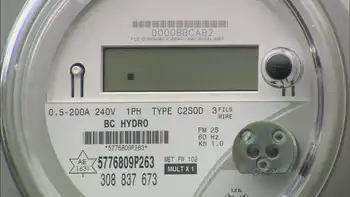Canada loses out as U.S. ups green ante
Already battered by recession and tight credit markets, Canada's renewable energy and clean technology companies must now compete for investment with their U.S. peers, who have an unprecedented cache of federal cash grants and tax incentives.
A start-up, whether it makes turbines for wind farms, solar panels or electric cars, may think twice before setting up shop in Canada, curbing the country's ability to create jobs and generate tax revenue, and losing technological innovation.
"There is no doubt that the actions of the Obama administration pose a real challenge to Canada," said Robert Hornung, president of the Canadian Wind Energy Association, whose members include Toronto Stock Exchange-listed Canadian Hydro Developers Inc, Algonquin Power Income Fund and Innergex Renewable Energy Inc.
"The U.S. has sent a very strong signal that renewable energy is going to play a central role in both energy-environment and economic recovery strategies. We don't have the same signals here federally," he told Reuters.
Hornung said he had started "hearing stories" of international companies shifting business away from Canada to the United States. Some U.S. companies in Canada were also pulling back, he said, without mentioning any names.
The United States plans to invest $59 billion of its $787 billion economic stimulus plan in green energy to help create jobs, double America's supply of renewable energy and reduce its dependence on foreign oil.
That comprises $39 billion for projects at the U.S. Department of Energy and $20 billion in tax incentives for industries such as solar energy, wind power and geothermal.
The Canadian government's centerpiece clean energy plan is the $1.5 billion ($1.4 billion) ecoENERGY for Renewable Power program, which was introduced in 2007. But Hornung said it will have allocated all its funding this fall.
"For investors who are looking at North America, they look to the U.S. and they see some policy certainty and a strong incentive. They look to Canada they see an incentive that is in essence shutting down and no certainty going forward. That is where our challenge is at the moment," he said.
The 2009 Canadian budget also included a $1 billion five-year Green Infrastructure Fund for clean electricity generation and a $1 billion Clean Energy Fund to support research and development of new renewable technologies — a help but not enough to compete with Canada's heftier neighbor.
"The risk is that early stage companies say, 'Maybe I should just be located in U.S. to start with'. The risk is that we lose the jobs and the innovation," said Jonathan Rhone, chief executive of Nexterra Energy, a small Vancouver-based company making gasification systems that convert waste fuels into clean heat and power.
Not all is doom and gloom though.
Tony Mitchell, chairman of Polaris Geothermal Inc, a Canadian-based energy company, said U.S. President Barack Obama's focus on renewables has raised the profile of the once little-known geothermal industry, which generates power through tapping heat from deep underground.
"It is bringing geothermal into the news. It makes capital-raising easier," he told Reuters.
The Toronto Stock Exchange, which has made the clean technology sector a key focus area, remains upbeat about its prospects, despite the muscle of the United States.
Carolyn Quick, spokeswoman for TMX Group, which runs the Toronto Stock Exchange and the TSX Venture Exchange, said "there is a strong pipeline of U.S. companies interested in raising capital in Canada when global economic conditions improve".
Within Canada, the province of Ontario stands out for its green policies, promising to invest almost $17 million in Electrovaya Inc, a maker of batteries for electric vehicles. It also plans rebates of up to $10,000 to buyers of plug-in hybrids and electric cars.
The Obama plan also helps Canadian companies with operations or customers in the United States that can benefit from the incentives.
"It is certainly causing us to spend more time in the U.S. Capital is still tight. We, as technology companies, go where the money is," Nexterra's Rhone said.
Related News

"It's freakishly cold": Deep freeze slams American energy sector
CALGARY - A deep freeze is roiling electricity markets in more than a dozen U.S. states, leading to record-setting prices for electricity and natural gas, knocking oil production off line and shutting down some of North America’s largest refineries.
“It’s freakishly cold,” said Eric Fell, a senior natural gas analyst with Wood Mackenzie in Houston, where record cold temperatures and snow have blanketed the city, caused rolling power outages, shut down refineries and sent both natural gas and electricity prices soaring.
'It’s freakishly cold': Deep freeze slams North American energy sector
The polar vortex has led to freezing temperatures in…




